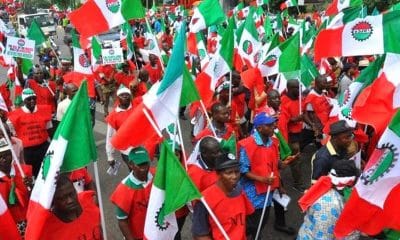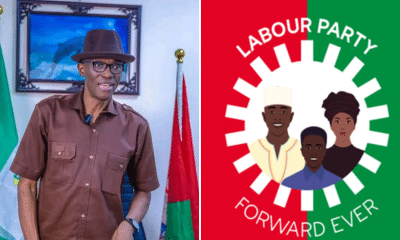Nigeria News
Minimum Wage: SDP Chairman Gabam Proposes ₦100k, Adjustment In Fuel Subsidy

The National Chairman of the Social Democratic Party (SDP), Shehu Gabam, has advocated for a ₦100,000 national minimum wage, amidst ongoing deadlock between the Federal Government and labour unions.
During an appearance on Channels Television’s Sunday Politics, Gabam expressed his view that such an amount would substantially ease the economic pressures on Nigerian workers.
Gabam’s proposal comes at a critical time when the government and organized labour, represented by the Nigeria Labour Congress (NLC) and the Trade Union Congress (TUC), are struggling to agree on a new wage structure.
Recent negotiations have seen minimal progress, with labour unions recently dismissing the government’s revised offer of ₦62,000, a slight increase from an initial ₦60,000 proposal. Labour’s stance remains firm, demanding a minimum wage of ₦250,000, a reduction from their earlier demand of ₦494,000.
The SDP chairman pinpointed the removal of fuel subsidies by the Federal Government as a principal factor exacerbating the cost of living, intensifying hardships for the average Nigerian.
“That’s what I think. It’s something that you can say is reasonably okay. It makes a little bit of sense. People can breathe, and people can go to work without thinking of sabotaging the institutions,” Gabam argued, emphasizing the necessity of a livable wage to mitigate potential institutional sabotage.
The stalled wage talks have previously prompted labour unions to engage in industrial actions, coercing the government back to the negotiation table.
He said, “This government initiated this crisis by removing the fuel subsidy and naturally, they don’t need to be told that there are consequences that will follow. What we expected is that by the time the government made up its mind to remove the fuel subsidy and the pains that would follow thereafter, the consumption rates, the supply rates, and the demand rates of the nation, no one can stand it.
“You are paying civil servants and other private employees just ₦30,000. And then when you go to the market, there is nothing of the lowest that you can get at the cost of ₦30,000.”












